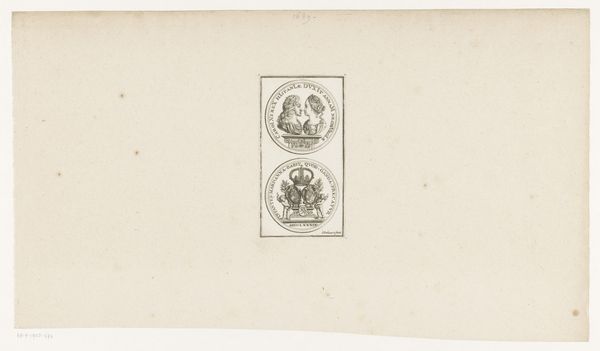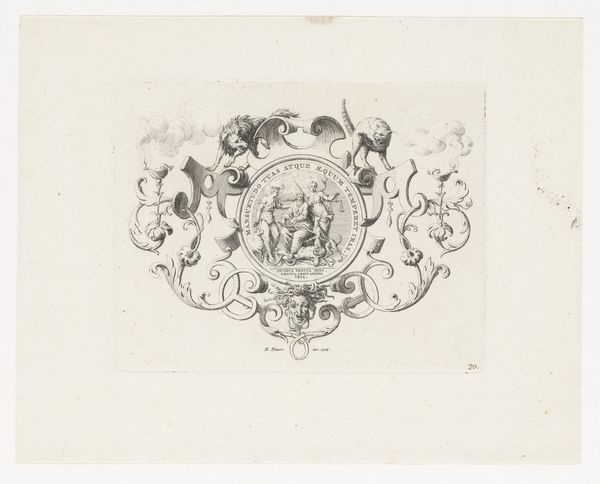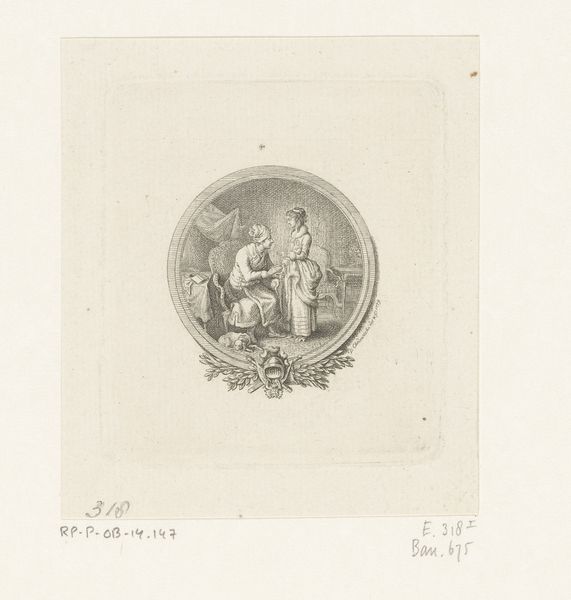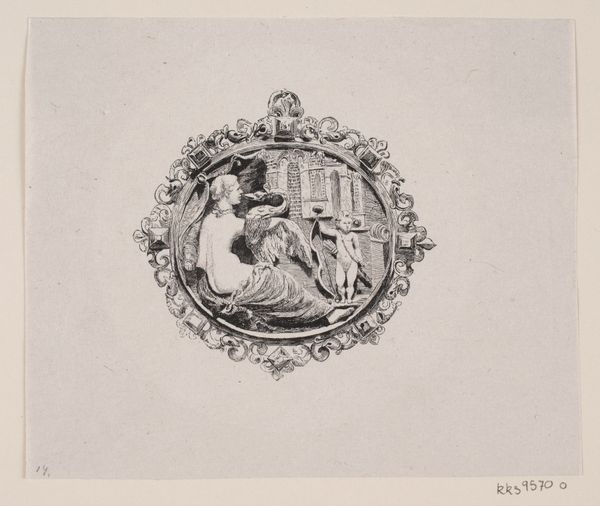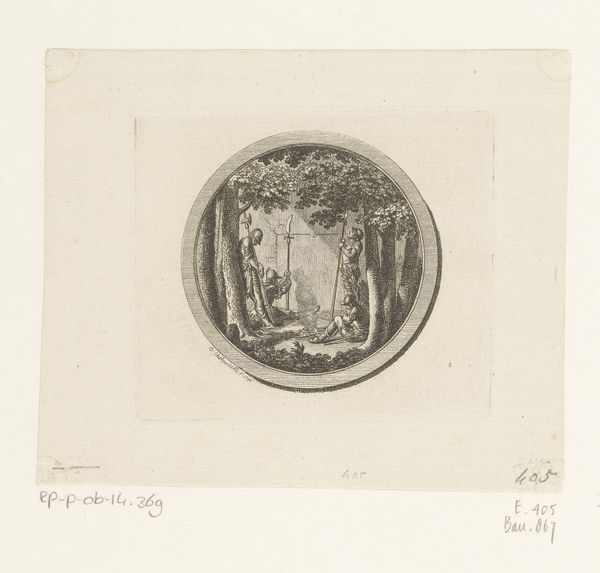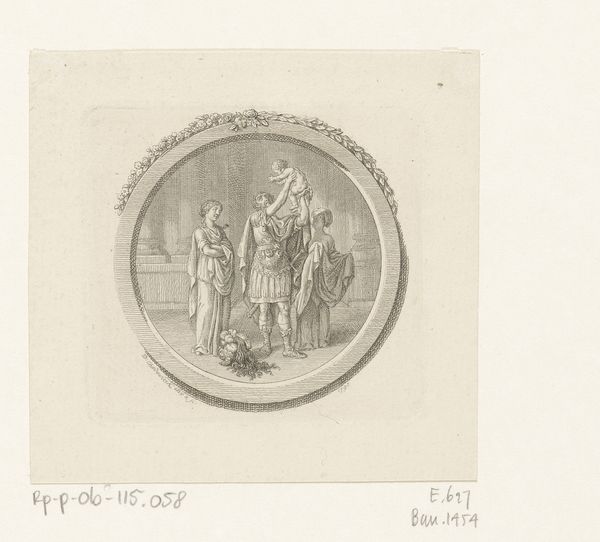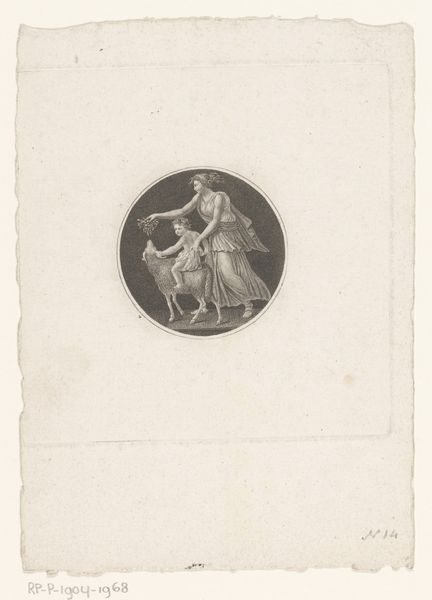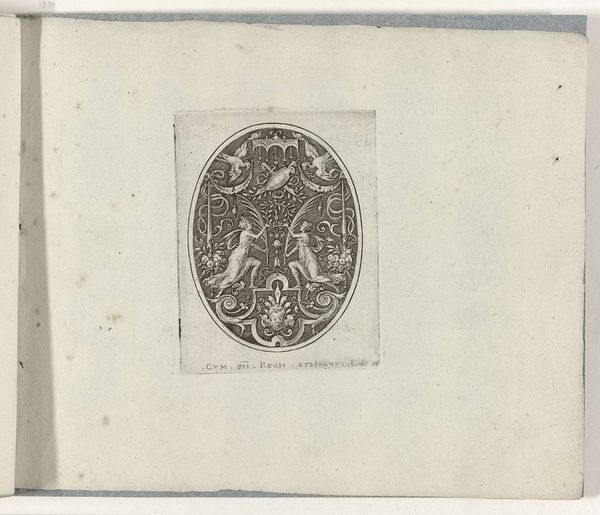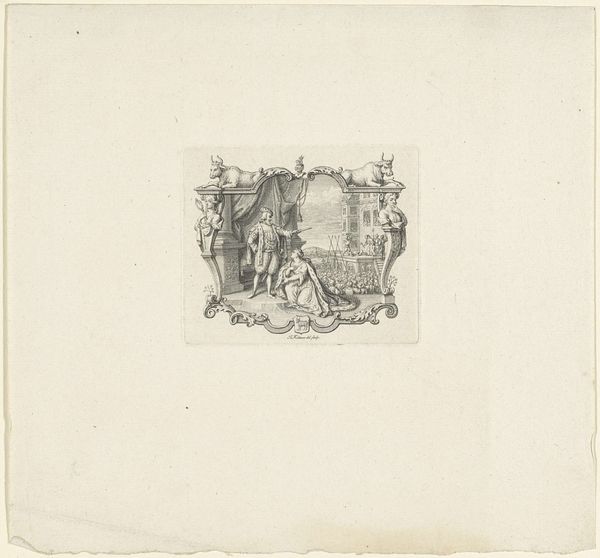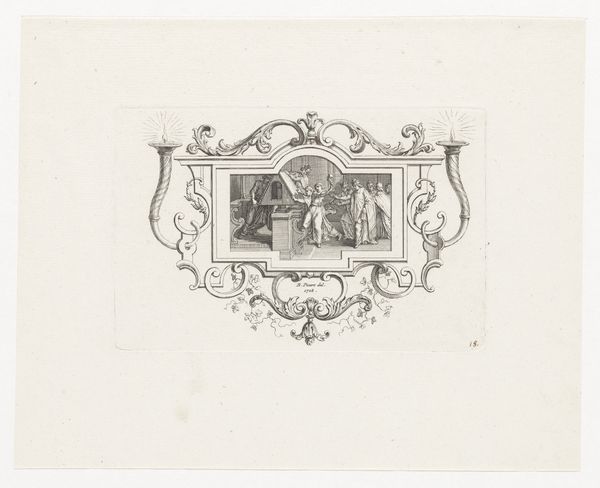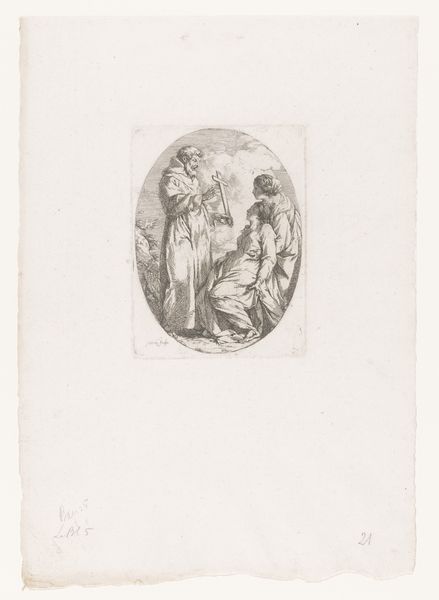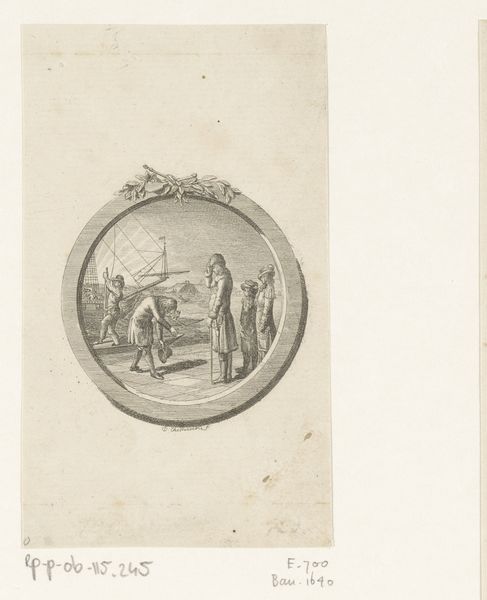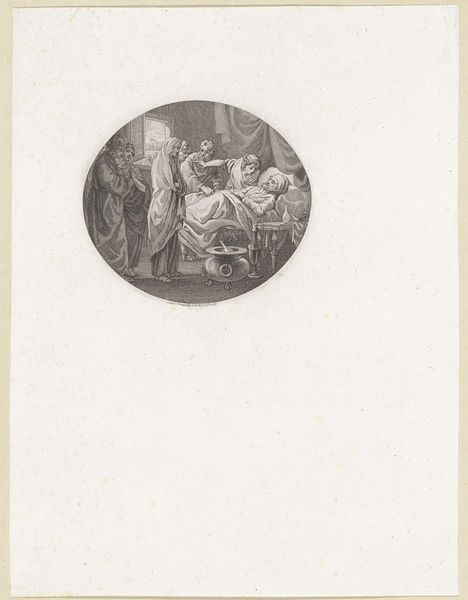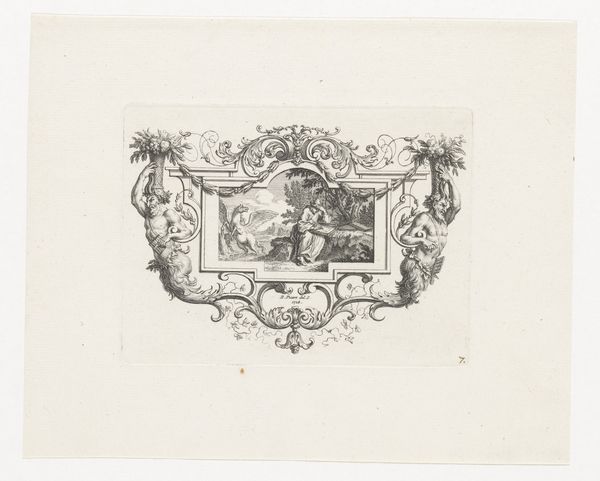
#
photo of handprinted image
#
toned paper
#
light pencil work
#
ink paper printed
#
light coloured
#
old engraving style
#
white palette
#
ink colored
#
watercolour illustration
#
watercolor
Dimensions: height 92 mm, width 121 mm
Copyright: Rijks Museum: Open Domain
Editor: This is *Allegorie op de dood van Johann Kaspar Lavater*, created between 1801 and 1807 by Jacob Merz. It’s an ink and watercolor print, held at the Rijksmuseum. It feels very neoclassical to me – quite somber and elegant. What symbols do you recognize here, and what might they represent in this context? Curator: Indeed, the somber elegance speaks volumes. Consider the urn: its shape evokes classical antiquity, a time often associated with ideals of beauty and order, but here it explicitly marks loss. And the putti...observe how they seem burdened, wings drooping. What emotional state do their postures suggest? Editor: Sadness, definitely. They’re almost struggling to hold up the garland. Curator: Exactly! That garland, usually a symbol of celebration and honor, becomes heavy with grief. Notice the "L" inscribed on the urn. What significance might that initial hold? Could it be a reference to Lavater himself? Editor: That makes sense! And the crossed quills behind the urn – perhaps alluding to his writings? Curator: Precisely. Symbols layer upon symbols, constructing a portrait of Lavater's life and legacy, filtered through the universal experience of mourning. Do you feel that the artist is celebrating his life or mourning his loss, or a blend of both? Editor: It’s a delicate balance. The urn is a clear symbol of death, but the garland, even weighed down, still speaks to remembrance and perhaps even the enduring quality of his work. It is thought provoking. Curator: The cultural memory encoded within these images shapes how we remember and process loss, linking us to generations past who found meaning in similar symbols. Perhaps even offering a visual language to understand death and dying. Editor: I hadn't thought about how consistently symbols appear over time! This has given me a richer appreciation of its historical and cultural importance.
Comments
No comments
Be the first to comment and join the conversation on the ultimate creative platform.
